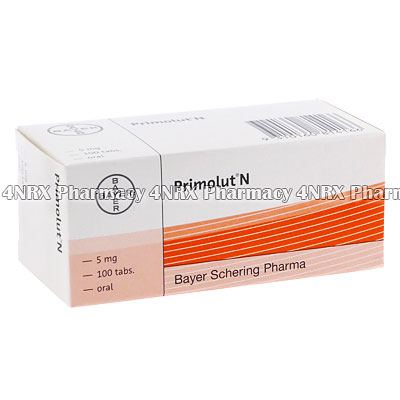 |
Home  Womens Health Womens Health  Primolut-N (Norethisterone) Primolut-N (Norethisterone) |
|
|||||||||
|
Primolut-N (Norethisterone)
What is Primolut-N (Norethisterone) used for? Primolut-N (Norethisterone) may be prescribed to female patients to help treat the following health concerns:
In addition to treating these conditions and/or their symptoms, this medication may be used as a contraceptive (in a similar way to how the female birth control pill) or to delay a woman's period.. This synthetic progestogen hormone is often known as 'the mini pill', or as a progestogen-only oral contraceptive pill. It works as a contraceptive in two key ways. It thickens the vagina's internal fluid, to discourage sperm from reaching the womb, and it affects the lining of the womb to inhibit eggs from both attaching and growing. How should I use Primolut-N (Norethisterone)? This medication is usually taken once a say, either with or without food. Unless otherwise directed, swallow tablets whole with a glass of water. If you are taking this medication as a contraceptive, and you vomit shortly after taking the tablet or experience diarrhea, you are advised to use additional methods of contraception for a period of 7 days. For this, use a barrier-method contraception, such as a condom. What are the side effects of Primolut-N (Norethisterone)? Report all side effects you experience to your physician. The following side effects may be experienced while taking this medication:
Notify your physician immediately if you notice any of the following more serious side effects: Promptly notify your physician of any:
Please Note Strictly follow all instructions provided to you by your physician or pharmacist while using Primolut-N (Norethisterone). Optimum and safe dosage can differ based on the patient and the condition being treated. As this medication may be unsafe for certain patients, it is essential you always inform your physician if you are pregnant or breastfeeding, as well as if you have any allergies, other illnesses, or ongoing health conditions, and if you are taking any other form of medication, supplements, or herbal products. Immediately seek emergency medical care if you have an allergic or hypersensitive reaction. Common signs of a reaction include hives, swelling, skin rashes, chest pains, as well as trouble breathing or swallow. 
|
|||||||||||||||||